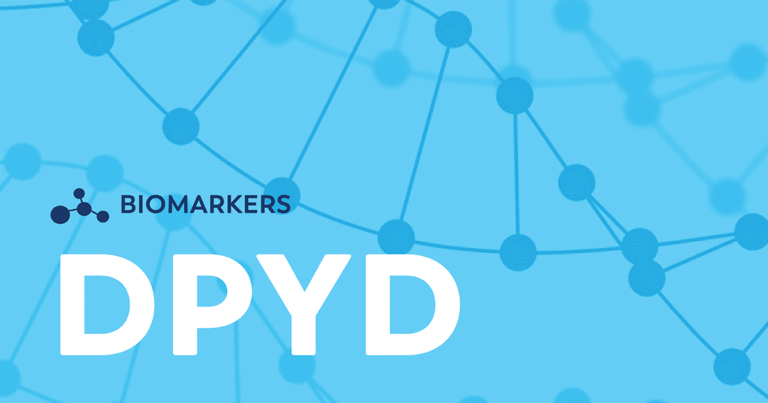Understanding DPD Deficiency: Causes & Effects
Were you aware that significant bodily responses can occur in up to 30% of patients who undergo certain chemotherapy treatments, responses that pose severe and potentially fatal threats to their lives?
In the realm of medicine, DPD deficiency represents a relatively uncommon condition, one that manifests due to inadequate or diminished activity of the DPD enzyme within an individual’s physiology. This insufficiency is known to significantly influence the response to cancer therapies, particularly those that fall under the category of fluoropyrimidines, e.g., 5-fluorouracil and capecitabine.
Diminished levels of the DPD enzyme may lead to an accumulation of aforementioned drugs within the body, thereby elevating their toxic impact, and subsequently, intensifying the severity of expected side effects. The complex interplay underpinning DPD deficiency emphasizes the critical need for an in-depth comprehension of its etiology and effects in order to refine the delivery of individualized cancer care.

Key Takeaways:
- DPD deficiency is a rare condition characterized by a lack or low levels of the DPD enzyme in the body.
- Typically, this deficiency arises from mutations in the DPYD gene.
- The inefficient metabolism of certain chemotherapy agents in the context of DPD deficiency can culminate in amplified drug toxicity and severe adverse reactions.
- Genetic screening for DPD deficiency offers a means to flag potentially vulnerable individuals, facilitating tailored treatment strategies.
- A nuanced understanding of DPD deficiency and its ramifications holds the promise of bolstering patient care outcomes through the application of personalized therapeutic approaches.
What is DPD deficiency?
DPD deficiency, known as dihydropyrimidine dehydrogenase deficiency, is a hereditary affliction affecting the synthesis of the indispensable dihydropyrimidine dehydrogenase (DPD) enzyme. Its pivotal role involves the catabolism of thymine and uracil, substrates fundamental in our genetic architecture and essential for the efficacy of select chemotherapeutic agents, encompassing 5-fluorouracil and capecitabine.
The etiology of this deficiency lies in aberrations of the DPYD gene, crucial for the endogenous manifestation of the DPD enzyme. These perturbations engender diminished or lacking DPD enzyme activity within the individual. Its manifestation is variable, categorizing it into complete or partial deficits, with the latter prevailing.
Complete deficiency: The paradigm of DPD enervation, complete deficiency, results in negligible DPD enzyme activity. Manifestations are profound, ranging from epileptic manifestations and cranial underdevelopment, comprising microcephaly, to pervasive cognitive impediments and assorted neurological sequelae, typifying its severity.
Partial deficiency: Conversely, its partial counterpart is characterized by compromised, yet detectable, DPD enzyme functionality. This state is mostly asymptomatic unless provoked by the administration of fluoropyrimidine agents. Lacking full enzymatic prowess, these agents accumulate, culminating in augmented systemic exposure, hence intensifying toxicities and adverse effects.
Understanding the ramifications of DPD deficiency is pivotal prior to the commencementsflurouracil or capecitabine. Such insight facilitates a personalized, genomics-guided approach, refining safety profiles and bolstering therapeutic efficacy.
Implementation of pharmacogenomic tenets coupled with meticulous genetic analyses empowers healthcare practitioners to tailor management strategies for DPD deficiency. This precision medicine paradigm is instrumental in mitigating risks while bolstering the efficacy of antineoplastic modalities, marking a significant stride in cancer care.
DPD deficiency and chemotherapy sensitivity
DPD deficiency presents a complex challenge, specifically in cancer treatment involving fluoropyrimidine agents like 5-fluorouracil and capecitabine. These individuals possess decreased or absent DPD enzyme function, disrupting the metabolism of such drugs. This leads to escalated drug toxicity and a heightened reaction to their adverse effects.
Fluoropyrimidine accumulation in those with DPD deficiency manifests detrimental effects. Among these is a decline in blood cell counts, increasing vulnerability to infections and bleeding. Moreover, these individuals often face formidable gastrointestinal issues such as severe diarrhea, in addition to mouth sores, nausea, vomiting, dehydration, and dermal alterations consequent to their therapeutic regimen.
Between 20 and 30% of those treated with fluoropyrimidines are projected to endure severe adverse effects. Albeit infrequent, the potential for life-threatening complications exists, highlighting the imperative nature of comprehending and addressing the implications of DPD deficiency on chemotherapy sensitivity.
Fluoropyrimidine-based chemotherapy, due to DPD deficiency, metamorphoses into a dilemma. Its efficacy in eradicating malignant cells is juxtaposed with the capacity for exacerbated injury in this population.
Counteracting the risks tied to DPD deficiency and enhanced chemotherapy responsiveness mandates the tailoring of treatment strategies. Oncologists, acknowledging this challenge, must explore alternative therapies or recalibration of fluoropyrimidine dosages to suppress severe repercussions. The employment of pharmacogenomic methodologies, scrutinizing a patient’s genetic constitution, promises to bolster treatment precision while curbing unwanted reactions.
Testing for DPD deficiency
Accurate diagnosis of DPD deficiency and assessment of metabolization ability require genetic testing. The process involves scrutinizing the DPYD gene for mutations linked to DPD deficiency. This method equips healthcare providers to construct chemotherapy treatment strategies tailored to individual genetics. Moreover, the domain of pharmacogenomics continually investigates the interplay of genetic variations and medication response, shedding light on DPD deficiency implications.
Initiating fluoropyrimidine treatment mandates a precautionary blood test for DPD deficiency. This preemptive measure mitigates potential adverse effects, enhancing patient welfare. Such diagnostics inform healthcare professionals on the necessity of dose modifications or alternative drug selections. These steps are pivotal in securing safe and efficacious cancer therapies.
Advantages of Genetic Testing for DPD Deficiency
The merits of genetic testing for DPD deficiency transcend mere diagnosis, encompassing:
- Personalized chemotherapy treatment: Detection of DPD deficiency enables treatment customization. This personalization facilitates dose adjustments or alternative medication strategies, aiming to reduce severe side effect risks.
- Early detection: Identification of DPD deficiency before treatment commences decreases the probability of adverse reactions.
- Improved patient safety: In safeguarding against life-threatening complications from erroneous drug metabolism, genetic testing plays a pivotal role.
The integration of genetic testing into DPD deficiency management epitomizes pharmacogenomic advancements. It allows healthcare providers to leverage genetic insights for precise, effective treatment planning. The approach significantly enhances personalized medicine’s efficacy, revolutionizing patient care.
Genetic Testing for DPD Deficiency
| Advantages | Explanation |
|---|---|
| Personalized chemotherapy treatment | Genetic testing allows for tailored treatment plans based on an individual’s DPD deficiency status. |
| Early detection | Testing before treatment enables the identification of DPD deficiency, mitigating potential risks early on. |
| Improved patient safety | Genetic testing protects patients from severe side effects and life-threatening complications. |
Managing DPD deficiency in cancer treatment
The nuanced intricacies of managing DPD deficiency mandate a bespoke strategy in cancer care. Vigilant oversight is imperative for patients exhibiting DPD deficiency, especially when the prescription involves fluoropyrimidine medications, to preempt potential toxicity. Redirecting treatment paradigms, at times, becomes indispensable to circumvent severe repercussions. Central to this approach is the discipline of pharmacogenomics, instrumental in isolating genetic variances critical for predicting medication responses. This precision allows for the customization of treatment regimens, averting adverse drug reactions in those with DPD deficiency.
Personalized Cancer Treatment
DPD deficiency presents unique hurdles in oncology, wherein its aberrant enzyme activity jeopardizes the safe metabolism of fluoropyrimidine agents, thereby escalating the peril of toxicity. Nonetheless, the advent of pharmacogenomics heralds a new era in bespoke cancer care. This avenue, by scrutinizing an individual’s genomic terrain, empowers oncologists to finetune therapeutic approaches. The goal: to amplify treatment efficacy while minimizing deleterious side effects.
Monitoring for Potential Toxicity
Thorough vigilance is non-negotiable for those with recognized DPD deficiency, subjected to fluoropyrimidines. Serum drug level evaluations, through regular hematalogical analyses, and symptomatic surveillance are essential for early toxicity cues. Dose modifications or modality changes might be necessitated by oncologists to avert adverse events.
Effective care necessitates a robust patient-provider dialog, ensuring a clear understanding of treatment consequences. Early symptom recognition, through patient education, coupled with swift intervention, is cardinal for averting severe morbidities, underpinning a more secure treatment course.
Consideration of Alternative Treatment Options
Under distinct scenarios, the quest for alternative therapies becomes imperative for DPD-deficient patients. Although fluoropyrimidines are a linchpin in oncologic care, equivalent outcomes could be sought through different pharmaceuticals or modalities, underlining the primacy of patient welfare and safety.
Such decisions hinge on a deep dive into the patient’s clinical and genetic backdrop, alongside tumor attributes. The curation of such bespoke strategies necessitates the synergy of a multidisciplinary cohort—comprising oncologists, geneticists, and pharmacists—to ensure the treatment solution is optimally tailored to the individual’s exigencies.
Improving Patient Outcomes with Pharmacogenomics
Pharmacogenomic insights significantly elevate the decision-making prowess of healthcare providers, distinguishing medications and dosages by demystifying a patient’s genetic susceptibilities. Such revelations, in the context of DPD deficiency, forecast drug reactions, thus auspiciously influencing patient outcomes.
By deploying pharmacogenetic tests, healthcare teams can pinpoint genetic markers indicative of severe fluoropyrimidine intolerance, enabling the personalization of treatment plans. This iterative refinement significantly reduces the risk of drug toxicity, fostering enhanced patient well-being and safety.
Comparison of Fluoropyrimidine Medications
| Medication | Usage | Dosing Adjustments for DPD Deficiency |
|---|---|---|
| 5-fluorouracil (5-FU) | Treatment of various cancers | Reduced dosage or alternative treatment in severe DPD deficiency |
| Capecitabine (Xeloda) | Colorectal and breast cancer treatment | Caution and reduced dosage in DPD deficiency |
Research on DPD deficiency and pharmacogenomics
Ongoing research seeks to advance our comprehension of DPD deficiency through the lens of pharmacogenomics. Efforts are concentrated on the DPYD gene and its variants linked to DPD deficiency. The overarching objective is to refine tailored chemotherapy by elucidating the influence of genetic diversity on drug response. Such initiatives target the enhancement of treatment precision and amelioration of side effect burdens in DPD deficient patients.
Exploring the DPYD Gene
Delving deep into the complexities of the DPYD gene is central to unearthing pivotal insights into DPD deficiency. Such scrutiny unveils the genetic nuances behind varied susceptibility to chemotherapy adverse reactions. This understanding is critical for customizing therapies to align with singular genetic markers, thus forging pathways towards safer, more efficacious cancer treatments.
Genetic Testing for DPD Deficiency
Genetic testing is indispensable in the realm of DPD deficiency investigation. It enables identification of DPYD gene mutations, thus, early DPD deficiency detection. These diagnostic maneuvers are instrumental in crafting bespoke treatment regimes and fine-tuning drug dosages to forestall severe complications. The quest to polish genetic testing methodologies to amplify reliability and availability remains a key research focus.
“The nexus between genetics and drug reaction is an evolving domain ripe with intrigue. By deconstructing the mechanisms of DPD deficiency, the groundwork for safer, more individualized cancer remedies is steadily being laid.”
Optimizing Treatment Outcomes
Enhancing treatment efficacy for DPD deficient individuals stands as a paramount goal of ongoing investigations. Acquiring a holistic view of the genetic foundation of DPD deficiency paves ways for innovative therapies. Leveraging pharmacogenomics accentuates personalized care, guaranteeing the applicability and efficiency of cancer treatments, with minimized adverse events.
| Research Findings | Implications |
|---|---|
| The DPYD gene is highly polymorphic, with numerous genetic variants associated with DPD deficiency. | This underscores the imperative of in-depth genetic analysis for accurate DPD deficiency diagnosis and the formulation of personalized treatment strategies. |
| Integrating pharmacogenomics with clinical insights can forecast individuals’ reactions to fluoropyrimidine drugs, aiding in treatment decisions. | Segmenting patients by genetic traits can dramatically mitigate severe reaction risks and advance treatment success. |
| Efforts are investigating substitute treatment modalities, like innovative drug preparations, to circumvent DPD deficiency challenges. | Development of treatments targeting unaffected metabolic pathways due to DPD deficiency can boost safety and efficacy. |
The ongoing inquiry into DPD deficiency and its nexus with pharmacogenomics signals a significant advancement in tailoring cancer care. By enhancing our genetic understanding, we are poised to transform chemotherapy administration into a bespoke, risk-aware endeavor, optimizing health outcomes for a broad spectrum of patients.
DPD deficiency prevalence and implications
DPD deficiency, while considered rare, significantly impacts those affected. Although complete deficiency is uncommon, partial DPD deficiency is found in 2-8% of the population1.
Discussing DPD deficiency is crucial in the context of fluoropyrimidine drug use, namely 5-fluorouracil and capecitabine. Studies suggest that 20-30% of those with DPD deficiency face severe symptoms or toxic reactions to these drugs2.
This statistic highlights the potential risks faced by many undergoing fluoropyrimidine-based chemotherapy. It stresses the need to detect and address DPD deficiency early in treatment planning.
Implications of DPD Deficiency:
- Increased risk of severe and potentially life-threatening toxic reactions to fluoropyrimidine drugs
- Heightened susceptibility to medication-related adverse events
- Necessity for personalized treatment strategies and dosage adjustments
- Importance of pharmacogenomic approaches in optimizing therapy
Proactive screening for DPD deficiency prior to cancer treatment considerably minimizes adverse event risks and enhances patient outcomes.
Below, a table outlines important data on DPD deficiency prevalence and implications:
| DPD Deficiency Type | Prevalence | Fluoropyrimidine Toxicity |
|---|---|---|
| Complete Deficiency | Less Common | Higher Risk |
| Partial Deficiency | 2-8% of individuals | Severe Symptoms: 20-30% |
The high prevalence of DPD deficiency underscores the need for extensive awareness and testing before administering fluoropyrimidine chemotherapy. Personalized medicine is a key strategy for maximizing the benefits of these drugs while reducing adverse reactions.

References:
- Amstutz U, Froehlich TK, Largiadèr CR (2011). “Dihydropyrimidine dehydrogenase gene as a major predictor of severe 5-fluorouracil toxicity”. Pharmacogenomics 12 (9): 1321–36.
- van Staveren MC, Guchelaar HJ, van Kuilenburg AB, Gelderblom H, Maring JG (2013). “Evaluation of predictive tests for screening for dihydropyrimidine dehydrogenase deficiency”. Pharmacogenomics 14 (9): 947–67.
Importance of DPD deficiency awareness
Within the realm of oncology, knowledge concerning DPD deficiency holds profound significance for both practitioners and their patients. The judicious practice of pre-treatment DPD deficiency testing, specifically before engaging in fluoropyrimidine therapy, stands as a critical imperative. This diagnostic strategy facilitates the proactive identification of susceptible populations. It paves the way for treatment scenarios meticulously tailored to the patient’s unique genomic composition, thereby mitigating the potential for adverse reactions and fostering treatment outcomes.
The clinical response to chemotherapy is inherently heterogeneous, predicated upon each individual’s genetic constitution. Hence, a comprehensive understanding of the patient’s genetic tapestry is indispensible for the formulation of bespoke therapeutic regimens. Genetic scrutiny, especially for DPD deficiency, plays a pivotal role here. It empowers healthcare professionals to curate treatment plans that are both efficacious and benign, custom-fitted to the nuanced clinical requirements of each patient.
Personalized Medicine for DPD Deficiency
Customized medicine heralds a new epoch in the oncological narrative. Whereby, treatments are meticulously tailored to the molecular intricacies of the individual. DPD deficiency’s impact on therapeutic trajectories is emblematic of the broader paradigm shift towards precision healthcare. By leveraging pharmacogenomic insights, clinicians are endowed with the tools to navigate a complex array of therapeutic options. They are equipped to make decisions that are not only therapeutically optimal but are also mindful of adverse reactions.
The advent of pharmacogenomic elucidations has markedly enriched our understanding of the interplay between genetic diversity and drug reactions. Preemptive identification of DPD deficiency arms clinicians with invaluable intelligence. This insight enables the calibration of treatments to obviate risks and accentuate therapeutic benefits. A personalized medicine schema, guided by these principles, is instrumental in enhancing patient welfare and forestalling the perils posed by adverse drug reactions.
“The discovery and subsequent awareness of DPD deficiency has transformed the field of oncology, allowing us to consider individual genetic variations and tailor treatment plans accordingly.” – Dr. Lily Thompson, Oncologist
Moreover, eludicating patients and healthcare professionals alike about DPD deficiency is indispensable for ensuring both safety and therapeutic efficacy. In encompassing the potential consequences of DPD deficiency, healthcare providers are better equipped to address bespoke clinical challenges. This proactive stance enables the crafting of therapeutic strategies that are attentive to individual variations, thereby fostering a safer and more effective treatment milieu.
The table below summarizes the key points regarding DPD deficiency, chemotherapy sensitivity, and personalized medicine:
| Key Points |
|---|
| DPD deficiency can lead to increased toxicity and severe side effects in response to fluoropyrimidine chemotherapy drugs. |
| Routine testing for DPD deficiency before treatment can guide personalized treatment strategies and prevent adverse reactions. |
| Pharmacogenomics plays a critical role in identifying genetic variations and tailoring treatment plans accordingly. |
| Personalized medicine approaches optimize treatment efficacy and improve patient outcomes. |
| Raising awareness about DPD deficiency among healthcare professionals helps ensure patient safety and quality care. |
Conclusion
DPD deficiency is a rare genetic condition outlined by diminished or lacking DPD enzyme activity, brought about by mutations within the DPYD gene. Such a scenario significantly alters the processing of fluoropyrimidine chemotherapy drugs. Consequently, it often results in escalated toxicity levels and the manifestation of severe reactions, thereby complicating cancer treatment strategies. Nevertheless, undergoing genetic testing to explore DPD deficiency pre-chemotherapy presents a key avenue for customizing cancer care.
Through the integration of pharmacogenomics and custom-tailored treatment modalities, medical professionals can significantly enhance cancer management. This personalized approach is designed to work in harmony with the individual’s distinctive genetic composition. By acknowledging the pivotal role of genetic variances in drug metabolism, tailored regimens are devised. This approach not only minimizes the likelihood of critical responses but is also aimed at bolstering the treatment’s efficacy.
Integrating genetic testing and the insights of pharmacogenomics into cancer treatments heralds a new era in modulating DPD deficiency. The ongoing advancement in this field reassures the progression towards more effective treatment strategies. The implementation of personalized medicine not only betters treatment results but also elevates the overall life quality of those contending with DPD deficiency.
FAQ
What is DPD deficiency?
DPD deficiency pertains to a scarcity or absence of the dihydropyrimidine dehydrogenase enzyme within the human body. This anomaly mainly results from DPYD gene mutations.
Affecting just a few, it stands as a condition of considerable rarity.
How does DPD deficiency affect chemotherapy sensitivity?
This deficiency influences a crucial process, altering the body’s reaction to select chemotherapy agents, particularly fluoropyrimidines. Substances like 5-fluorouracil and capecitabine, lingering without full enzyme breakdown, may impose extreme effects.
This effect heightens the possibility of life-threatening outcomes.
How is DPD deficiency tested?
Diagnosis involves genetic testing, a route that unveils DPYD gene variants linked to DPD deficiency.
This method serves as the primary diagnostic tool for this complex ailment.
How is DPD deficiency managed in cancer treatment?
Tailored cancer therapy is pivotal for those diagnosed with DPD deficiency. Intensive surveillance during fluoropyrimidine administration is essential, aiming to forestall toxicity.
Replacing standard therapies with alternatives is a strategy sometimes warranted, mitigating the risk of severe repercussions.
What are the implications of DPD deficiency?
The effects on cancer care are profound, as DPD-deficient individuals face an elevated danger of severe, potentially fatal reactions to certain cancer drugs.
This knowledge shapes treatment decisions, necessitating a nuanced approach for affected patients.
What research is being done on DPD deficiency and pharmacogenomics?
The evolving landscape of DPD deficiency research underpins efforts to deepen our comprehension, especially regarding the genetic underpinnings.
Pioneering scientific inquiry focuses on the DPYD gene, seeking to refine personalized chemotherapy management strategies.
How common is DPD deficiency?
In the domain of oncology, DPD deficiency emerges as a rarity, afflicting a minor fraction with partial deficiency and an even smaller group with intensified symptoms upon exposure to fluoropyrimidine agents.
Why is DPD deficiency awareness important?
Its recognition is fundamental for both clinicians and their patients, the critical intervention point lying in prescriptive scenarios.
Standardized testing ahead of fluoropyrimidine use facilitates risk identification, enabling bespoke treatment paths.
What is the significance of DPD deficiency in cancer treatment?
The role of DPD deficiency in oncology is pivotal, influencing drug reactivity and necessitating a precise clinical response. Genetic testing to gauge DPD activity frames individualized care.
This approach minimizes the specter of adverse drug events in this specific population subset.






